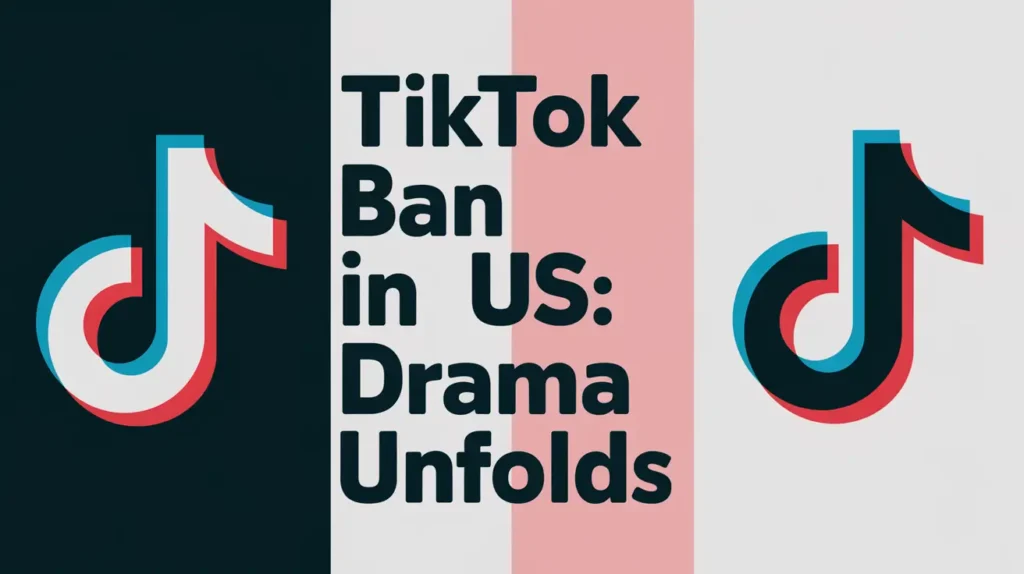Yet again, the wildly popular short video app TikTok is at the center of a firefight in the United States. We are closer than you think to the TikTok ban and may have been enjoying the app only to have our love for it turn to hate. What’s the real story behind this? We’ll explore the drama that has millions of TikTok users across the country addicted.
Background: Legal Battles Of TikTok
The Protecting Americans from Foreign Adversary Controlled Applications Act or PFACA was passed by Congress in April 2024. It targets TikTok directly, requiring that the company’s parent, ByteDance, sell its U.S. operations to a non-Chinese company or be shut down completely by January 19, 2025. But lawmakers say TikTok’s Chinese ownership poses a potential risk to national security.
But ByteDance isn’t making it easy to go down without a fight. The Supreme Court political action committee lodged a complaint with the Hartford Courant, the Connecticut Post, and Connecticut Public Broadcasting accusing the company of taking the matter to the court, claiming the ban is an infringement on free speech, and does not have any solid proof to back up such extreme measures. The app’s fate now hinges on January 10, 2025, when hearings are scheduled for the case before the nation’s top court.
Why the Ban? National Security Concerns A look
The heart of this controversy centers itself on the fear that Tik Tok will share sensitive user data with the Chinese government. Likely censored or tracked journalists, critics have panned Tik Tok. Calls for such action have been fueled by such allegations as the global chill between the U.S. and China continues to rise.
Meanwhile, however, TikTok has denied these accusations. It also notes that the company goes to great lengths to be transparent such as hosting U.S. user data on American soil via partnerships with Oracle. However, it’s too big a gamble for lawmakers and security experts, just the possibility of interference makes it not acceptable.
Looking down the Economic Side of the Story
The economic ramifications of a ban on Tik Tok are tremendous, despite the political storm. Combined, the company is a huge player in the U.S. digital economy, generating over $10 billion a year in ad revenue. It could be a ban that changes the face of advertising for the better, to rivals such as Meta and Google’s YouTube.
But businesses using TikTok for marketing and engagement could also be hit by disruptions. A ban would deter many small businesses and influencers looking to reach audiences there, but many could also take up Instagram Reels and YouTube Shorts as alternatives.
Political Twists, Drama, and the Presidency
TikTok is as entertaining as it is the political narrative surrounding it. But since then he’s thrown his backing behind a policy of strictly negotiating, and on Wednesday even President-elect Donald Trump suggested he might be willing to consider revising a ban. Yet many are left wondering if Tik Tok will get a last-minute reprieve as his softened stance has beguiled.
The flip-flop does make the entire saga more unpredictable. Trump’s about-face may be pregnant with a compromise, but it also calls into doubt U.S. policy on digital sovereignty.
If TikTok is Banned, What Could Happen?
App stores and hosting services that help support TikTok in the U.S. would be banned if the ban goes through. That means no more updates and no more functionality getting taken away anymore, and not even sure if the app will show up on users’ devices at all.
Of course, being the internet, many will almost certainly look for workarounds. Die-hard fans of TikTok could use virtual private networks (VPNs) to log on to the app from other regions but this will have slower performance and notably higher security risks.
It’s the end of an era for content creators, the TikTok ban might feel like. Fans would have to become comfortable with a world without scrolling endlessly into the For You page of TikTok Tip’s delicate ecosystem.
The Cultural Impact: Beyond the App
TikTok isn’t just an app — it’s a cultural phenomenon. It has turned viral dances into a form of entertainment and trended whatever works online. A ban that might or might not happen would hurt users, of course, but also disrupt the creative ecosystem they’ve built up.
TikTok to Gen Z and millennials is more than entertainment, it’s a community. Losing it feels like losing a digital town square in which creativity refuses to be constrained.
Conclusion
TikTok ban debate is a reality TV finale almost as dramatic as anyone could ever want—unexpected twists, heated arguments, and millions of fans clamoring for the next episode. Whether TikTok survives or not, its story tells us something about the intricacy of the relationship between entertainment, politics, and technology in our world today.
As the Supreme Court deliberates, one thing remains clear: The saga of TikTok is far from over, its market has only yet begun to impact culture in a digital sense. Scroll, continue to create, and enjoy the entertainment while it’s here.
Also Read: SAG Awards 2025 Highlights
